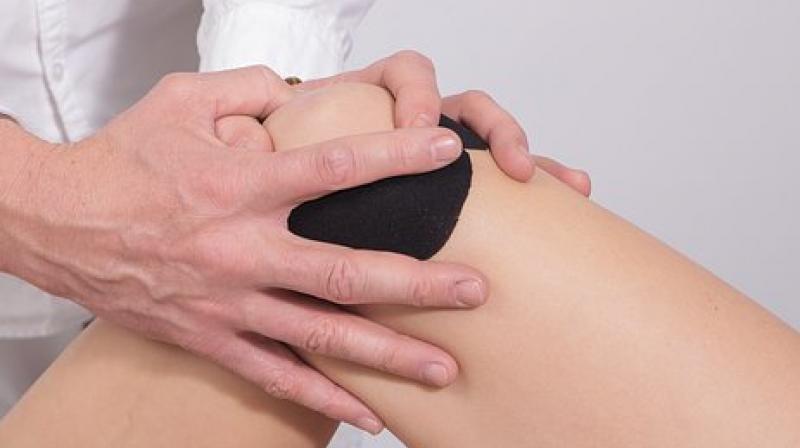Recent scientific studies suggest that there is an intricate relationship between what a person eats and how it can affect their joint health. From anti-inflammatory fruits and vegetables to immune-boosting bacteria, there is a range of changes that one can make to their diet that could help reduce pain and protect joints.
In an article published in MailOnline, the news organisation spoke to medical experts to find out what food should one tuck into to avoid joint pains.
Notably, the most common type of arthritis is osteoarthritis and is caused by a wearing-away of the cartilage covering the ends of the bones. Cartilage helps joints move smoothly, but, with time, as it thins, the bone underneath tries to repair itself, and can over-grow, causing deformity and leading to internal damage, inflammation and pain, and immobility.
Mediterranean diet: Rich in fruit, vegetables, wholegrain cereals, legumes, nuts, and supplemented with small amounts of fish, lean meat and olive oil, it’s naturally high in health-giving compounds like antioxidants, omega-3 and monounsaturated fats, which help the heart, and unrefined carbohydrates, to aid digestion.
According to experts, Mediterranean diet is full of anti-inflammatory compounds and limits the foods that promote inflammation in the body.
A 2015 study reported that patients with osteoarthritis had a significant reduction in pain just two weeks after switching to a mostly vegetarian diet.
Studies found that those who ate a Mediterranean diet for three months had a significant reduction in pain and episodes of inflammation. No changes were seen in those who continued their existing diet.
Having yogurt: A new area of research points to the importance of gut health when managing arthritis, particularly in those with rheumatoid arthritis.
A University of Rochester study in the US found that mice put on a junk food diet, and who had high levels of ‘bad’ bacteria in their digestive system, developed osteoarthritis.
Mice that ate prebiotic foods – those that encourage healthy gut bacteria growth – did not develop the problem. Prebiotic foods include onions, garlic, asparagus, leeks and Jerusalem artichokes.
Consuming oats: It turns out that a bowl of porridge a day could help diminish the pain of osteoarthritis.
Speaking about it Professor Rayman says that patients with osteoarthritis are more likely to have raised cholesterol levels and there is some evidence that lowering those levels can reduce pain. In the Chingford Study, the longest running osteoarthritis study in the world that began in 1989, knee pain has been significantly associated with raised cholesterol and dietary changes can reduce ‘bad’ LDL cholesterol by around 35 per cent, equivalent to a low dose of cholesterol-busting statins.
If you’re not a fan of porridge, add a daily 30g of nuts or 25g of soya protein into your diet, which can be found in soy milk and edamame beans.
Eating fish: Oily fish can help ease joint pain because it’s rich in omega-3 polyunsaturated fatty acids.
It’s generally recommended that you should aim to eat one or two portions a week. Oily fish include mackerel, salmon and tuna (although not tinned tuna). If you don’t like fish – or suffer from gout, a form of arthritis where uric acid builds up in the joints, and need to limit your intake – you can supplement your diet with fish-oil capsules.
Eat steaks: Arthritis can raise the risk of anaemia, a deficiency of red blood cells, which are essential for carrying oxygen around the body. Symptoms include feeling tired, dizzy and generally listless. In the case of rheumatoid arthritis, anaemia can arise because chronic inflammation in the body and long-term use of anti-inflammatory drugs sap the body of iron.
Eating beef or lamb, as part of a balanced diet, can be a great source of protein and micro-nutrients, including iron.
Drink milk: Arthritis makes one more susceptible to developing osteoporosis, a weakening of the bones. Inflammation in the joint can make it difficult for calcium to reach the bone, putting it at risk of crumbling. Calcium also plays a role in the immune system and, according to a 2013 study by the University of Bristol, tissue repair.
The recommended daily amount of 700mg can easily be obtained from three portions of dairy a day.








